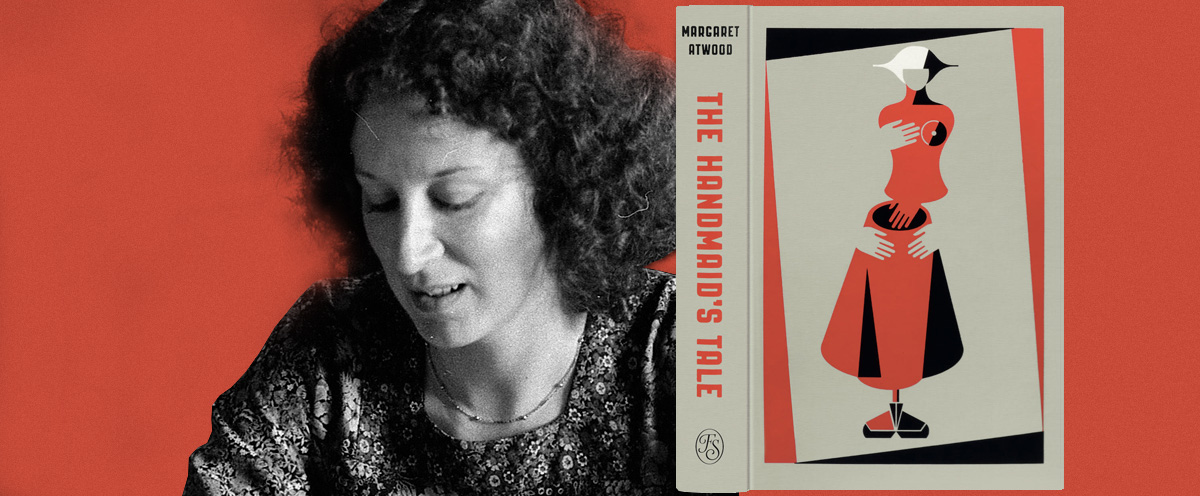If a dystopian setting starts off as an extrapolation from the trends of a status quo, how can it not be considered science fiction?
When the extrapolation assumes impossible or extremely low probability events as key elements, or when it incorporates magic. If it's a space setting, a little magic makes it into Space Opera - a subtly different form of speculative fiction. Not all Space Opera deserves to have Science in its label — not that this makes it bad fiction —
When Atwood wrote Handmaiden's Tale, in the years leading up to its 1985 release, it was looking to be extremely unlikely. It was an examination of the risks of a certain type of extremism extant in other places, transposed to the US.
I should note: I have not read the book, nor watched the show, but have read many reviews of both. And seen Atwood's responses. A newer article gives the reason why many consider it merely an alt-history but not science fiction:
Margaret Atwood said:
I made a rule for myself: I would not include anything that human beings had not already done in some other place or time, or for which the technology did not already exist. I did not wish to be accused of dark, twisted inventions, or of misrepresenting the human potential for deplorable behavior.
Some books haunt the reader. Others haunt the writer. The Handmaid’s Tale has done both. The Handmaid’s Tale has not been out of print since it was first published, back in 1985. It has sold millio…

lithub.com
Basically, It's not Sci-Fi because all the changes were thought, even by the author, to be low probability non-technological social changes. At the time, it looked like a dark fantasy... but later events in the real world have altered that point of view.
Moreover, it's built on tropes that are all from real history - time jumped and mixed into a nightmare. Which is why I've opted to not read it. I didn't quote that portion, because of the gory details, but it's the same paragraph as above.
I am struggling to think of one that doesn't fit that model. Of course, that description can arguably apply to all alternate histories, too....
MASH - it's an alternate history, almost by accident. How? The active war phase of the Korean War lasted twice as long in the series as it did in reality. The Warrant Officers and NCOs were wearing the wrong insignia (both wearing 'Nam era, rather than Korean era), too. It wasn't science fiction - it was political commentary on the then ongoing Vietnam war, set in the past. Likewise, China Beach wasn't as much about Viet Nam as it was about the relationship of the US and warfare - a protest of American interventions in Europe, Africa, and South America. Every war, we seem to get a bit of an ahistorical historical setting fiction... and it's set in a prior war... but not about that war, merely using it as a proxy.
NCIS tries to stick to current — if bleeding edge — tech. But, despite looking a lot like our world and timeline, theirs has a whole hell of a lot more murders by &/or of USN and USMC personnel. Murder shows sell more commercials for better prices than simple procedurals. This makes it an alternate history (as does the renaming of the director), but not sci fi. And, like many such, it's making political and social commentary.

